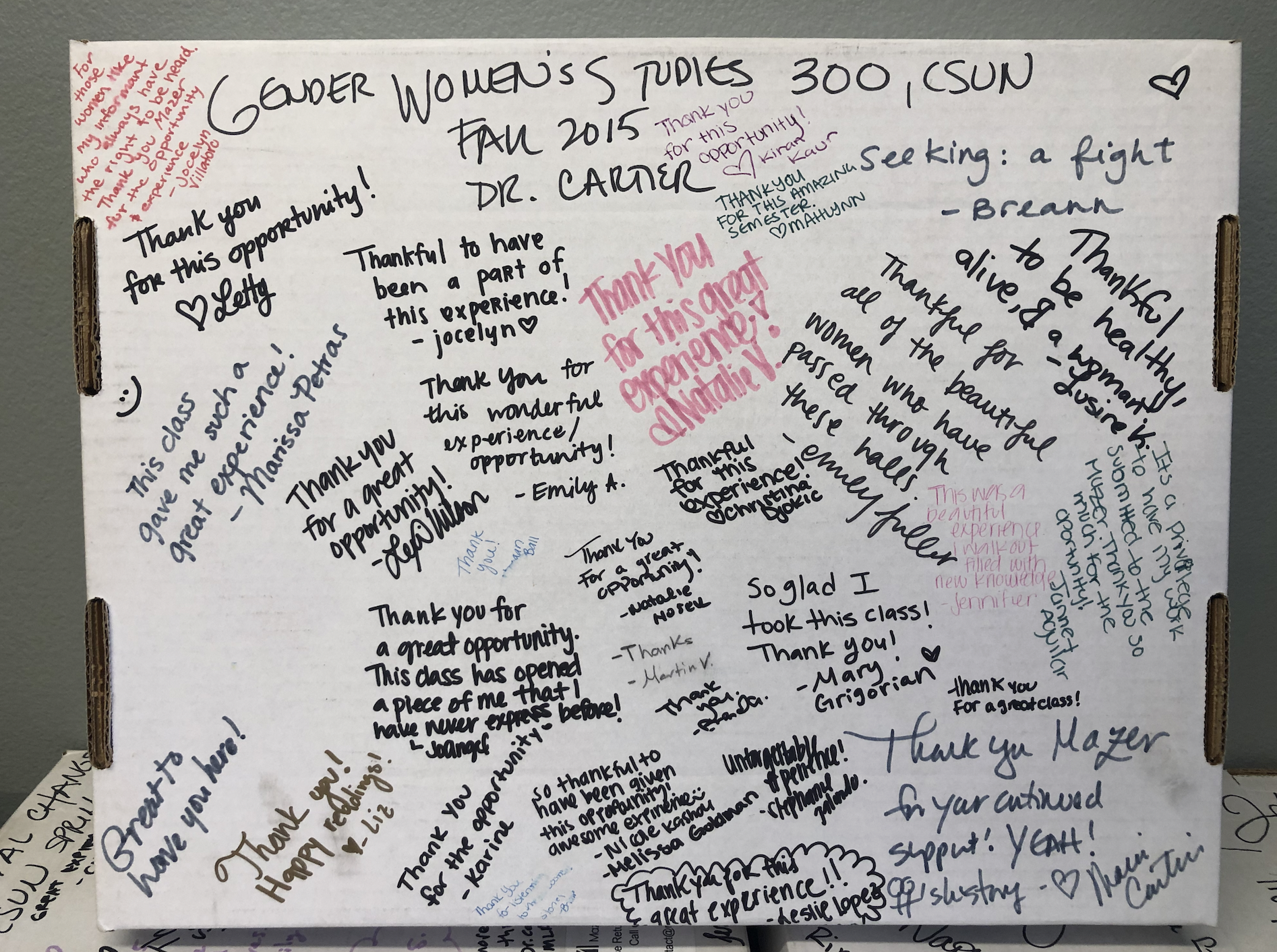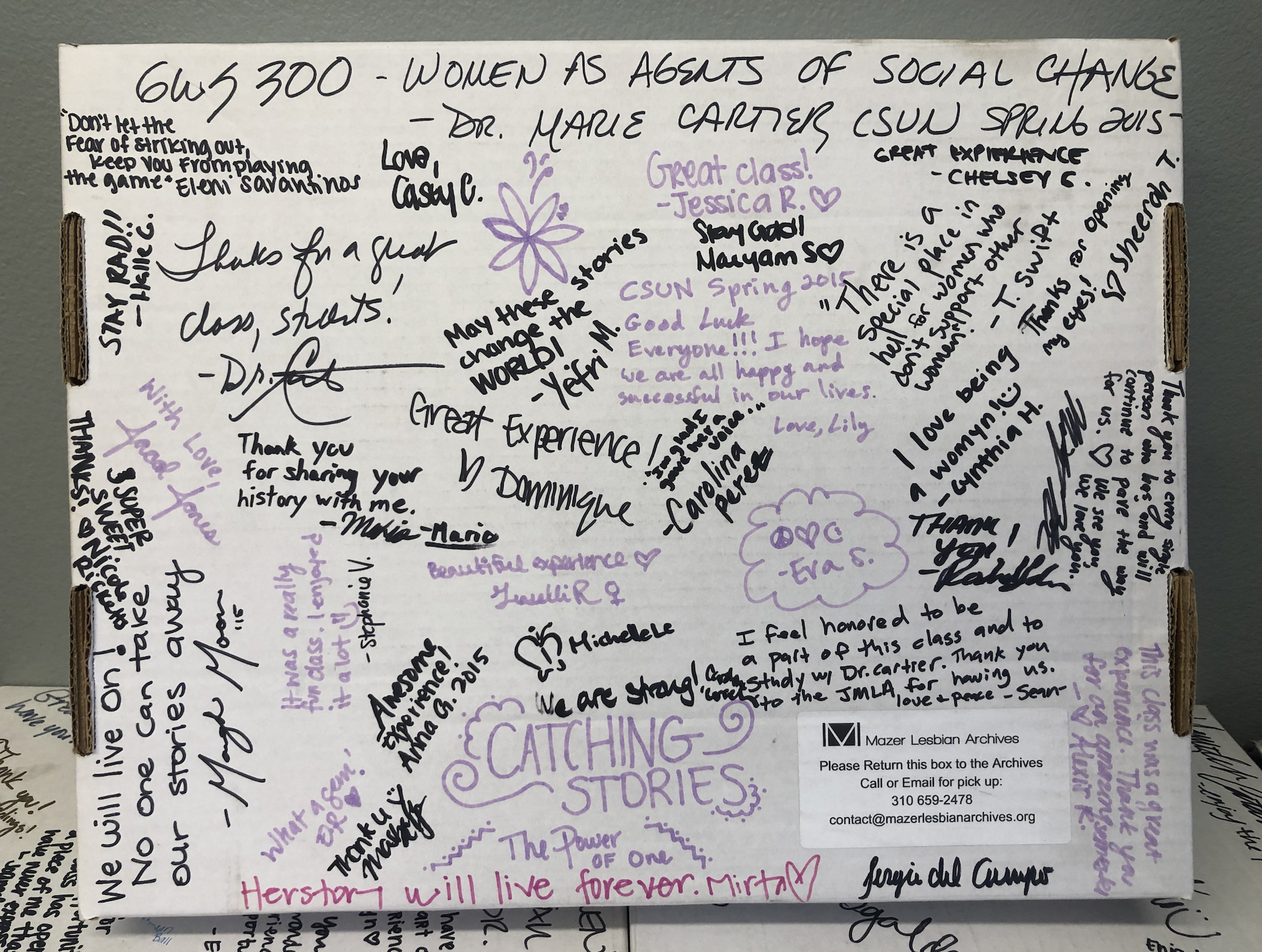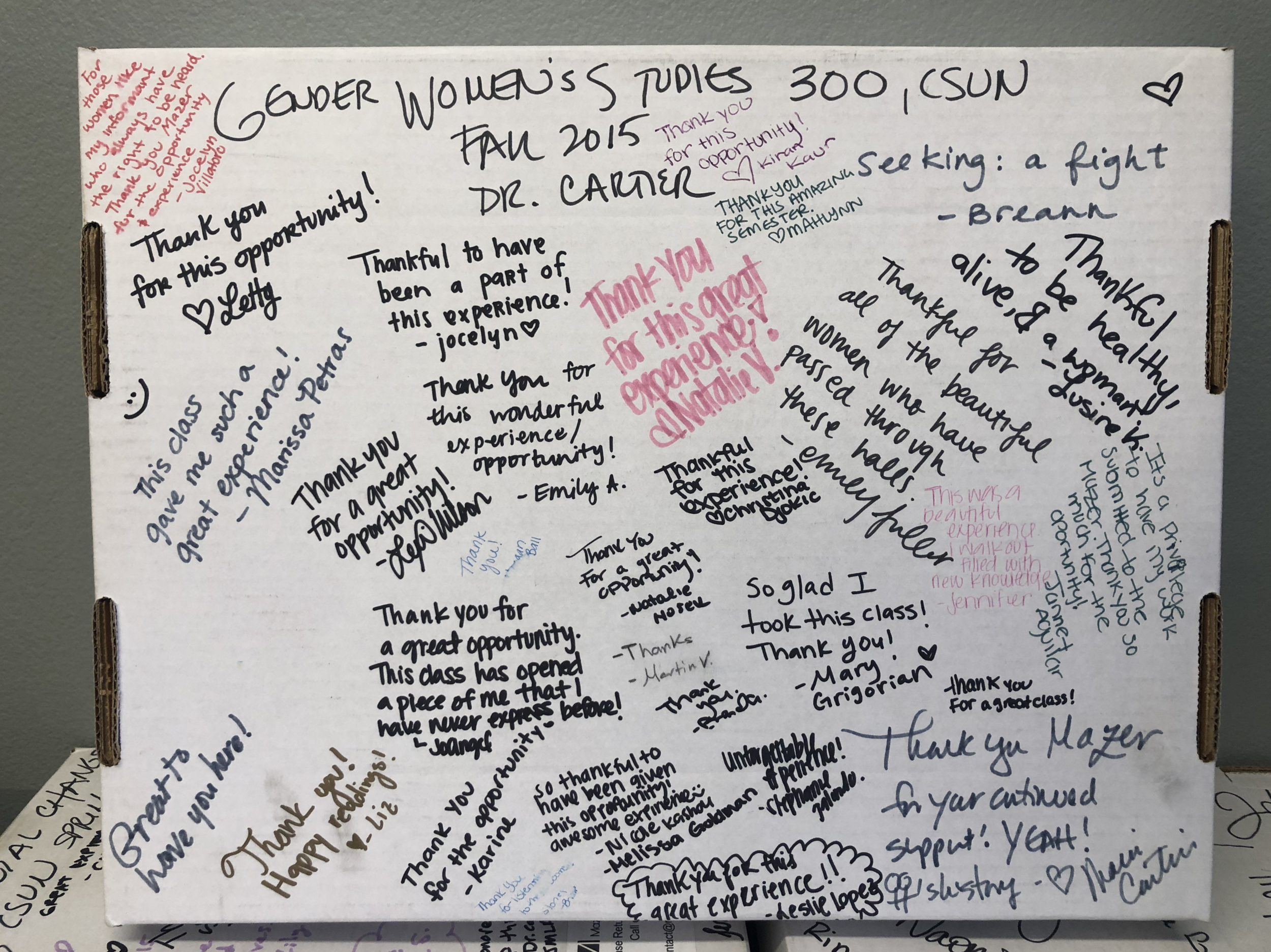Dr. Marie Cartier Collection
Full finding aid and list of materials
Marie Cartier’s materials have been processed in two parts.
The first collection of materials was processed in 2011 and is located in UCLA's Special Collections as part of their relationship with the Mazer. In addition, a shortened finding aid based on this collection was created by a UCLA student receiving their Masters in Library Science.
Read the UCLA Special Collections’ finding aid for the Marie Cartier Papers.
The second collection was processed from 2023-2024 as part of a California State Grant awarded to the Mazer in 2020. It is currently located at the Mazer.
Read the finding aid for the Marie Cartier Collection processed between 2020-2024.
An efficient way to search for specific materials within these finding aids is to use Ctrl+f (Windows computer) or Command+f (on a Mac).
BIOGRAPHY
Dr. Marie Cartier is a professor, visual/performance artist, queer activist, poet, and theologian. She has been active in many movements for social change such as the Dandelion Warrior Project, the Rocky Flats Truth Force, and the AIDS Coalition to Unleash Power. Dr. Cartier teaches at UC Irvine in the Film & Media Studies Department and CSU Northridge in Gender and Women’s Studies and Queer Studies.
Dr. Marie Cartier was born in Exeter, New Hampshire in 1956. She grew up in Exeter, going to St. Michael's Catholic School, then St. Thomas Aquinas for two years, later moving to Exeter public school, while also taking a creative writing course at Phillips Exeter Academy as the only girl in the class. Dr. Cartier earned her BA in Communications from University of New Hampshire with minors in Dance, Photography, and English. Shen then moved to Boston and worked as a journalist for Gay Community News and Equal Times. In the 1980s, she earned an MA in poetry from Colorado State, and in 1987 got an MFA in theater and an MFA in film at UCLA.
While in film school, Dr. Marie Cartier published I am Your Daughter, Not Your Lover and when the book was published, she attended a book conference where she met Patricia Warren. Through discussions with Patricia Warren, established the Dandelion Warrior Project, an initiative that provides a support system for incest survivors. The Dandelion Warrior project includes research, writing workshops, theater presentations and classes. At her poetry readings, Dr. Cartier would read an excerpt from I am Your Daughter, and then ask survivors to stand up at the end of the presentation to pledge to give up suicide as an option. Each survivor who would stand up was presented with a medal. Throughout the length of the project's existence, Dr. Cartier has given out over 2,000 awards to survivors who pledge not to kill themselves.
In 2002, she earned an MA in Art with a specialization in Sculpture at Claremont University. She remained at Claremont and pursued a PhD in Religion with an emphasis on women in 2010. While in Graduate school, Dr. Cartier conducted over 100 interviews of Lesbian women who were a part of the American butch-femme bar culture of the mid-20th Century for her thesis. This research was synthesized in Dr. Cartier’s book Baby, You Are My Religion: Women, Gay Bars, and Theology Before Stonewall in 2013.
When Dr. Marie Cartier started to teach Women’s Studies classes at CSU Northridge, she asked Angela Brinskele from the June L. Mazer Archives to come and speak to the class about how the archives can be a resource for her students. Angela began visiting classes and gave lectures about the Mazer Archives and the importance of oral histories for lesbian history, leading to the introduction of a student’s learning to conduct oral histories themselves. For their final projects before the pandemic, Dr Cartier’s students would volunteer for ten hours at the Mazer Archives and would focus their project on understanding the timeline of events relative to their interview. Post-pandemic, it was difficult to have students safely volunteer in person, so the interview portion of the project was expanded. Students conduct a one-hour interview of about ten to twenty questions interviewing survivors and elders of their community. These projects teach students how to do ethnographic work and engage them in intergenerational conversations, often leading to life-changing conversations and the establishment of lifelong mentors. The creative component is meant to honor the elder and interpret what they learned from their interviewer in a new way. The ongoing partnership between Dr. Cartier and the June L. Mazer Archives has lasted over ten years as students’ work is donated each semester that the classes take place.
Image Caption: Above reproduction of a painting by student Katherine Linares depicts Queer Elder, Ronnie Sanlo, with a rainbow aura emanating from her likeness. The painting also includes collaged black and white images of ERA marches + women’s rights documentation in the turtleneck area of the portrait. Scroll down to watch the oral history interview of Ronnie Sanlo conducted by Katherine Linares.




